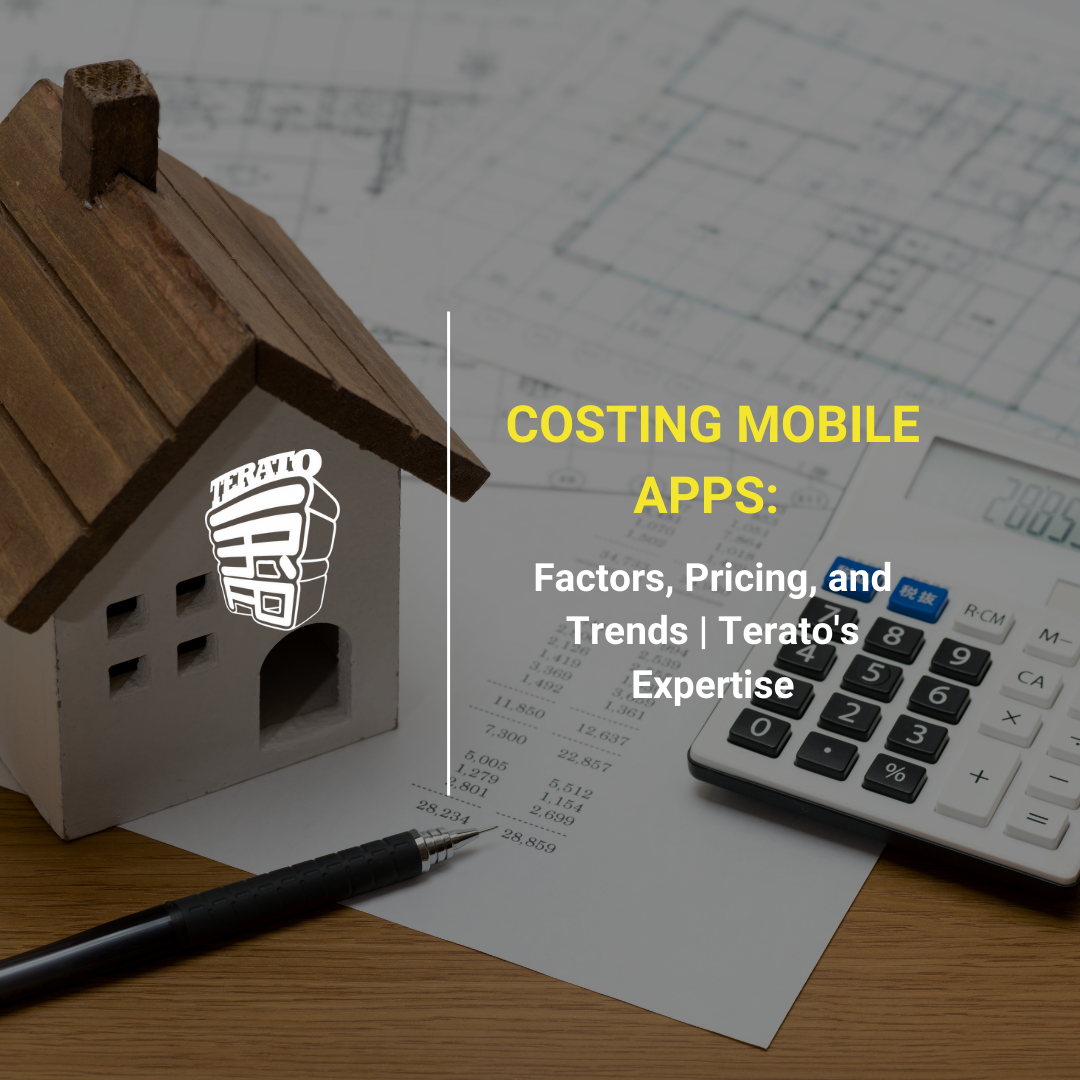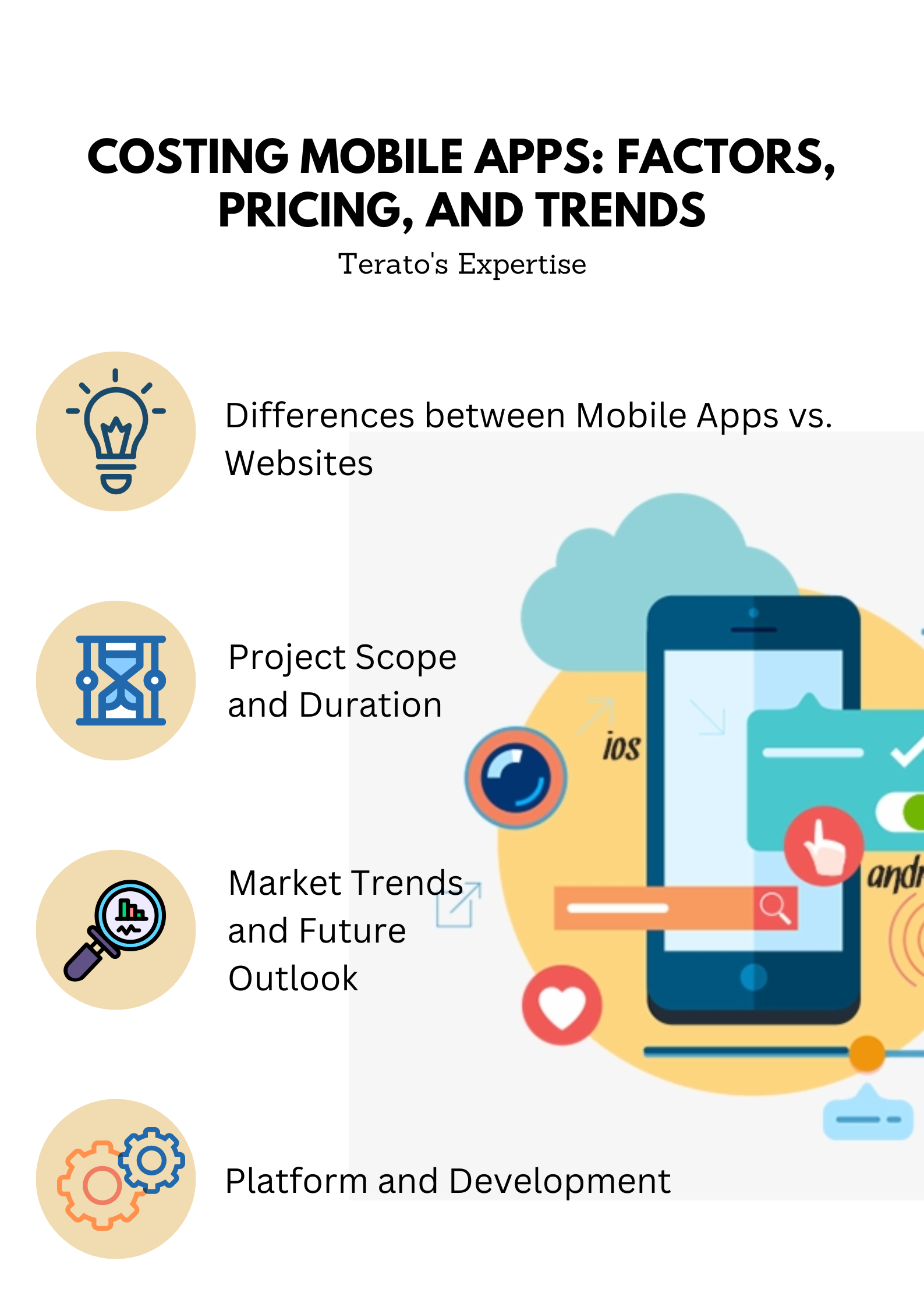Costing Mobile Apps: Factors, Pricing, and Trends | Terato's Expertise
Share this to

Table of content:
- Project Scope and Duration
- Platform and Development
- Warranty and Maintenance Support
- Differences between Mobile Apps vs. Websites
- Market Trends and Future Outlook

How much does it cost to develop an app in Malaysia?
In today's digital age, mobile applications have become an integral part of businesses, providing convenience, engagement, and accessibility to users. When it comes to developing mobile apps, cost plays a crucial role in determining the scope and quality of the project. In this article, we will explore the various factors that influence the cost of mobile apps and how Terato, a premium app development company, manages to deliver projects with punctuality and minimal risk.
Project Scope and Duration:
The first factor to consider in costing mobile apps is the project scope and duration. Generally, a basic mobile app can be developed within a time frame of 1 to 3 months, with a maximum cost of around RM150,000. This cost includes end-to-end services, from project management, development, testing, and project deliverable. However, the duration and costs can vary depending on the complexity of the app and the desired features.
Terato understands that project duration can differ based on the scope. Basic app development like register function, profile, and simple dashboard typically takes around 3 months and the cost remains within the stated range. In contrast, advanced projects with more intricate requirements may extend beyond 6 months or even span over a year, depending on the modules involved. For example, projects that include business logic or projects scope that are based on tender with many modules.
Platform and Development:
The choice of platform significantly affects the cost of mobile app development. If the app is intended for a single platform, such as Android, the cost can be kept below RM 100,000. However, for cross-platform development, where both Android and iOS platforms are targeted, the cost will naturally increase due to the additional development effort and testing required.
Terato prices its services based on the skillset and requirements needed for the project. By leveraging their in-house expertise, they optimize the use of resources and minimize project risks, ensuring timely delivery while maintaining quality standards.
Warranty and Maintenance Support:
The size of the project also determines the warranty and maintenance support provided by our companies. Typically, larger projects come with a longer warranty period, which is included in the overall cost. This warranty ensures that any bugs or issues discovered after the launch of the app are promptly addressed, providing peace of mind to clients.
Once the warranty period expires, clients have the option to choose between passive or proactive maintenance support. The cost for the support after the warranty is about 20% of the project value. Passive support, available during office hours, is suitable for systems that are less crucial and offers a more cost-effective solution. On the other hand, proactive support, available 24/7, is recommended for utility systems such as ordering and banking apps, where uninterrupted availability is crucial. Proactive support is suitable to ensure that consumer services aren't affected.
Differences between Mobile Apps vs. Websites:
When comparing the cost of mobile apps and websites, several factors come into play. Websites' costs largely depend on design complexity, with more digitalized and interactive websites requiring higher investments. In contrast, mobile app prices are determined by the number of platforms targeted. Cross-platform development can increase costs compared to single-platform app development.
Terato's pricing strategy considers the specific skill sets required for each project and the client's unique requirements. This tailored approach ensures that clients receive the best value for their investment.
Market Trends and Future Outlook:
Mobile app development has experienced a slowdown in the Malaysian market as businesses focus on restructuring their back-end architecture to ensure stability. However, it is anticipated that by 2025, there will be a significant boom in mobile app development as companies embrace the need for digital transformation and enhanced user experiences.
Terato's client base demonstrates a balance between website and mobile app development projects. Clients often begin with website development and subsequently express the desire to expand their presence through mobile apps. With a comprehensive in-house skill set, including project managers, technical leads, business analysts, testers, and developers, Terato provides end-to-end solutions to cater to all client needs.
Conclusion:
Costing mobile apps involves considering various factors such as project scope, platform requirements, warranty periods, and maintenance support. Terato, as a premium app development company, prioritizes delivering projects with punctuality and minimizing risks through its in-house skill sets and process roles. By understanding the client's requirements, Terato ensures that each project is tailored to meet their specific needs, resulting in successful mobile app development and website solutions. As the mobile app market continues to grow, investing in app development has become crucial for businesses aiming to stay competitive in the digital landscape.
Share this to